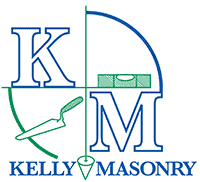Nothing beats the feeling of having a home fireplace that keeps your home warm and cozy, especially during the winter season. Unfortunately, leaky chimneys are a common problem affecting brick chimneys and can be caused by a variety of problems.
Chimney leaks are most common when there’s heavy rain, and even chimneys with no previous problems can also develop leaks with accompanied water damage. It’s crucial to determine chimney leaks early to prevent worse damage down the road. Here are potential reasons why your home’s brick chimney is leaking and how you can repair the leaks quickly.
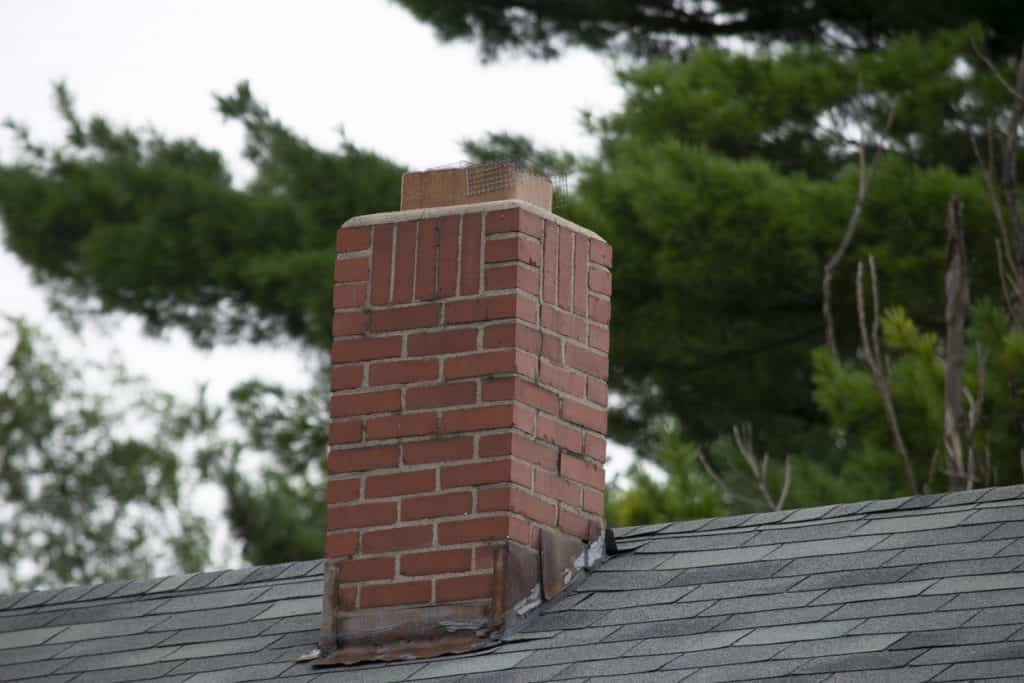
Reasons Why Your Brick Chimney Could Be Leaking
What causes detrimental leaks to your chimney? Even though your brick chimney might seem structurally sound, there are several reasons your brick chimney may be allowing rainwater inside your house. Here are the top reasons why your brick chimney could be leaking:
Lack of a Chimney Cover or Cap on Top of the Chimney
One of the main causes of leaking brick chimneys is that your chimney lacks a covering on the top. Without a cap, cover, or crown, the chimney has no way to protect itself against rain entering it. Apart from water or moisture, a chimney with no cover also offers a free passageway for birds and other animals into your house.
In addition, the flue tile located out of the chimney top often doesn’t have a cover to protect the chimney from rain and birds. In the case of a fireplace, a flue without a cover on it can allow water drops to penetrate down the smoke shelf. The water can then penetrate through the masonry, which could deteriorate the base of the chimney of the wall at the back of the fireplace.
A Faulty Chimney Cap or Crown
Another common cause for your brick chimney leaking is a damaged or cracked chimney cap or crown. The chimney crown is a brick, stone, or concrete slab on the top of the chimney that helps protect the chimney from the weather.
The main purpose of a crown on your chimney is to keep the rain out of your house, and if it’s cracked, the cracks will allow water into the chimney and into your house. If your chimney crown or cap is made from a mortar, the water leaks can be worse because the mortar does not repel rainwater by default. Instead, the mortar can absorb rainwater which could leak into your chimney structure. And because water is subject to gravity, it trickles down the chimney through the masonry and eventually gets into your house.
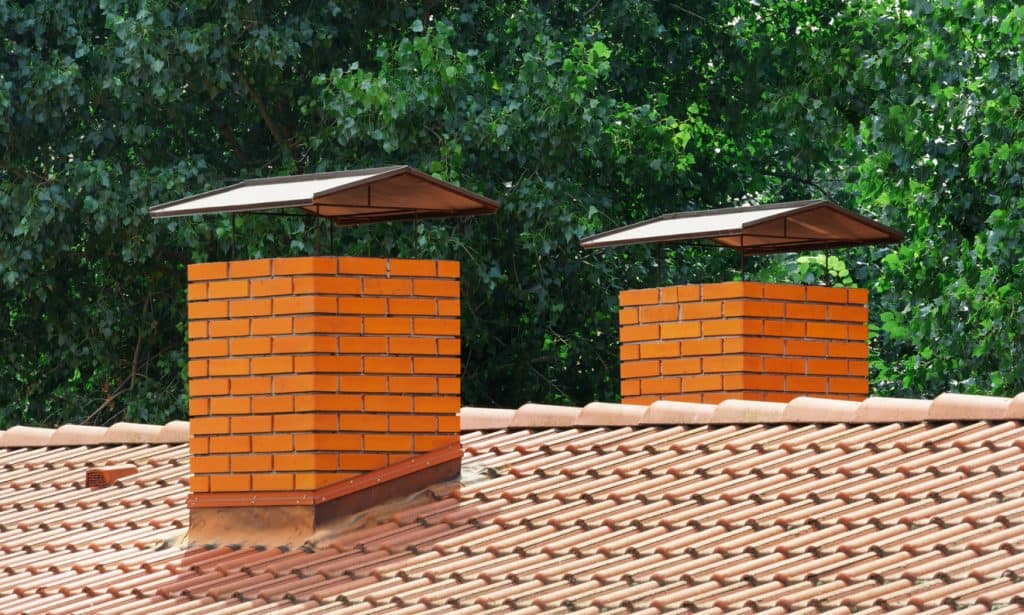
Incorrect or Faulty Flashings
There should be a flashing where your chimney and roof meet. The flashing is a metal material meant to prevent water from getting in around your chimney, and it’s often sealed with waterproof and flexible sealants like tar and silicone. The flashing should be properly installed in a way that water runs down the flashing without getting under the flashing. When not installed well, the flashing sealant can erode with time and create an entryway for water.
Both the flashing and its sealant do not last forever, and it’s important to get your damaged flashing repaired immediately because your roof and entire house are in danger of water damage if water gets through. When you have your flashing sealant installed, ensure that it’s waterproof and can stay intact to prevent water leaks now and in the future.
Deteriorated Bricks and Mortar Joints
Freezing and thawing during different weather seasons can damage your chimney bricks and mortar, one of the most annoying ways through which your chimney can leak water. If you have a brick chimney, the mortar and bricks are porous enough to absorb rainwater.
If your chimney exterior has damaged masonry, rainwater can find its way in through the cracks or holes in the joints. Once there’s sufficient water in the joints, gravity eventually takes over and allows the water down your chimney. If your brick chimney deteriorates, it’s crucial that you repair it and ensure there’s an application that will allow the release of water rather than trapping water.
Chimney Condensation From the Inside
Your chimney can also leak from the inside out due to condensation building up on the inside. Even though leaking chimneys due to condensation is rare, leaks often happen when you burn a gas appliance, and water is produced through the combustion process.
When your chimney has a proper size, the water produced by the combustion process is in steam form. However, when the chimney is not the right size, the steam can build up and result in a leaking problem in your chimney.
Signs That You Have a Leaky Brick Chimney
Not sure whether or not your home’s chimney is leaking? Most homeowners assume that leaky chimneys only present themselves as visible water in the flue or the fireplace. However, there are several indications of leaky chimneys, including:
- Sound of water dripping inside the chimney, at the fireplace
- White, chalky residues on the inside of the fireplace
- Musty or dank odor from the attic or the firebox, especially after raining
- Moisture, water staining, leaks, or dampness on your interior house ceiling and walls
It’s also worth noting that due to the complexity of chimneys, you might not recognize if your brick chimney is leaking until there’s significant damage. It’s therefore crucial to have regular preventative chimney inspections and maintenance by an expert. That way, you’ll identify any new damage on time and have it repaired before it escalates to a serious chimney leak.
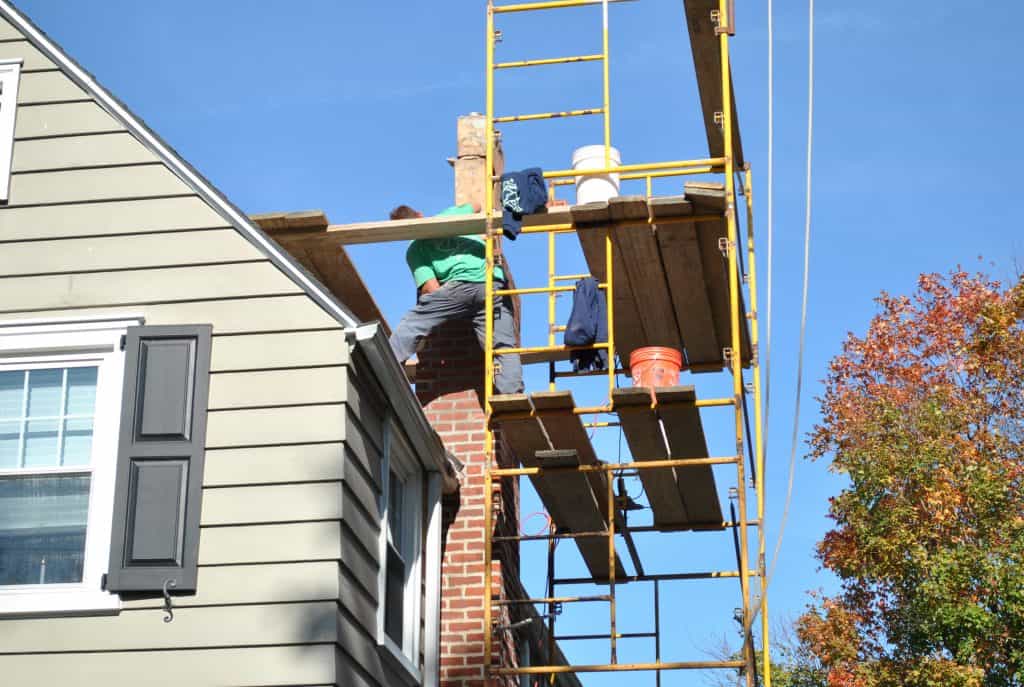
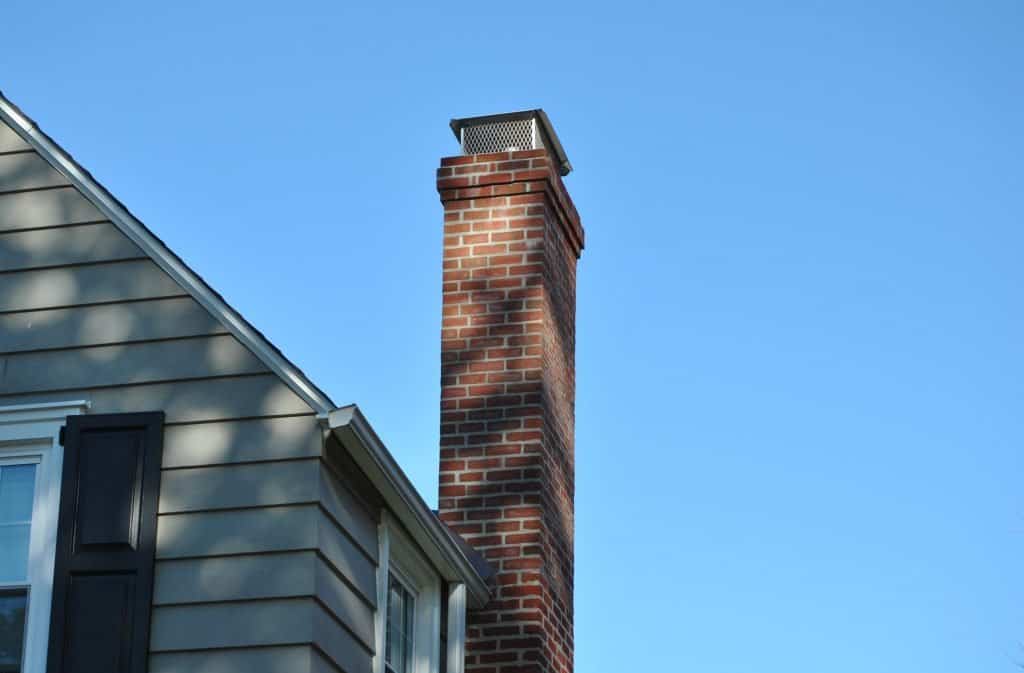
Fix Your Leaking Brick Chimney Once and For All
So, what’s the best solution for your leaking brick chimney? The first step to fixing your leaking chimney once and for all is to have an expert determine the main source of the leaks and then prevent any future leaks.
And even though you can conduct some maintenance in your home, any project that involves your chimney flashing, crown, or any other part of the chimney requires a professional mason. An expert will be able to locate the cause and repair the leaks quickly. If you’re unsure about your chimney’s state, contact us today and have our experienced masons inspect it to prevent future leakages.
